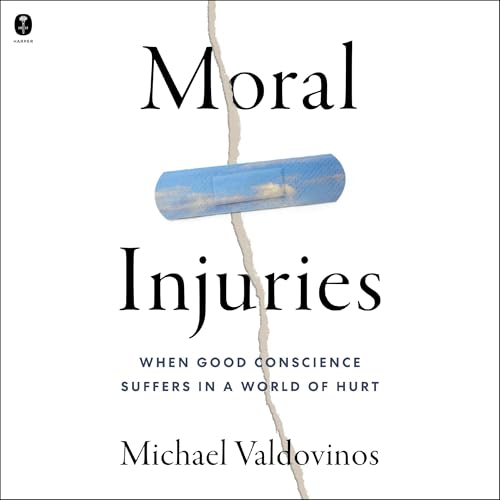
Moral Injuries
When Good Conscience Suffers in a World of Hurt
Falha ao colocar no Carrinho.
Falha ao adicionar à Lista de Desejos.
Falha ao remover da Lista de Desejos
Falha ao adicionar à Biblioteca
Falha ao seguir podcast
Falha ao parar de seguir podcast
Pré-venda com 30% de desconto
Pré-compre agora por R$ 82,99
-
Narrado por:
-
Timothy Andrés Pabon
Sobre este título
A psychologist’s paradigm-shifting exploration of moral injury—the wound we suffer when our core values are violated by what we’ve done, failed to do, witnessed, or been compelled to accept—and how to begin to repair it.
An invisible malady is reshaping the emotional core of our institutions, communities, and inner lives. This ailment fractures our sense of self, erodes our trust in others, and leaves us questioning not only what has happened to us but also who we’ve become. It arises in high-stakes moments when we are compelled—or sometimes choose—to participate in, witness, or remain silent as our deepest principles are violated. And it’s reaching epidemic levels throughout our society.
This condition is known as moral injury.
More than stress or trauma, moral injury is a rupture of conscience, itself, signaled by shame, guilt, anger, alienation, and loss of trust. Often confused with PTSD, which is a reaction to mortal threat, moral injury arises in response to moral threat. First observed in soldiers, it is now appearing across professions—from medicine to tech, law to public safety—anywhere people face impossible choices that pit survival, duty, or success against their principles. Dr. Michael Valdovinos, a psychologist, veteran, and trauma expert, has spent over a decade exploring this acute form of ethical and emotional pain. In this urgent and necessary book, he investigates how moral injury manifests, why it matters now more than ever, and what it reveals about our social contract.
Rather than offering prescriptive steps, Moral Injuries invites readers into stories of rupture, reckoning, and repair—tracing how individuals begin the work of healing. Through history, science, and lived experience, it also opens a new conversation about the role of conscience in protecting the health of society.


